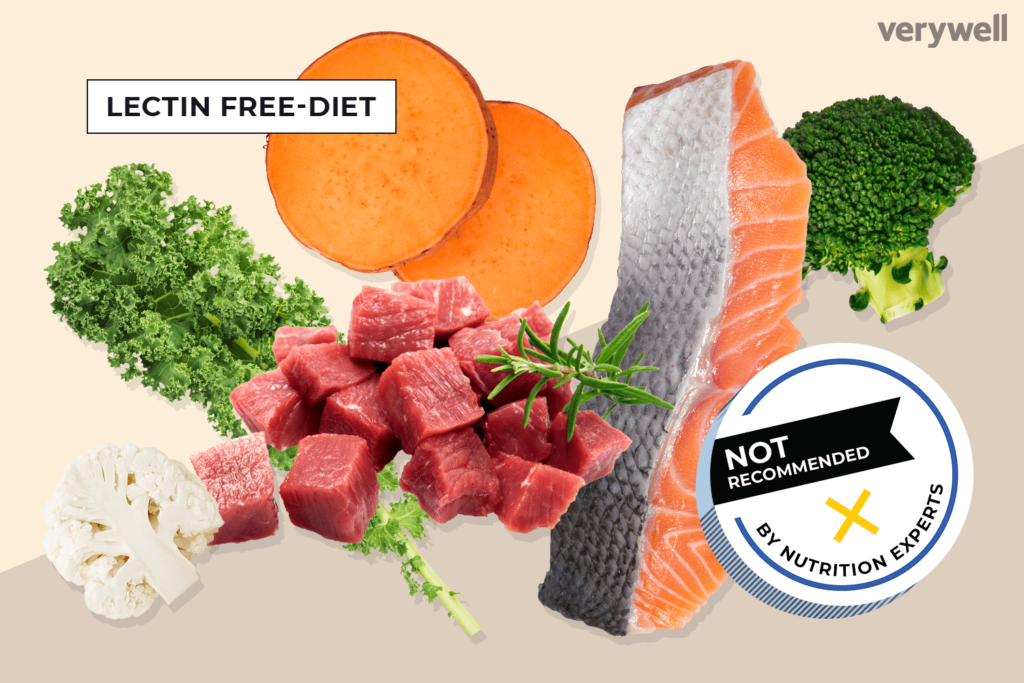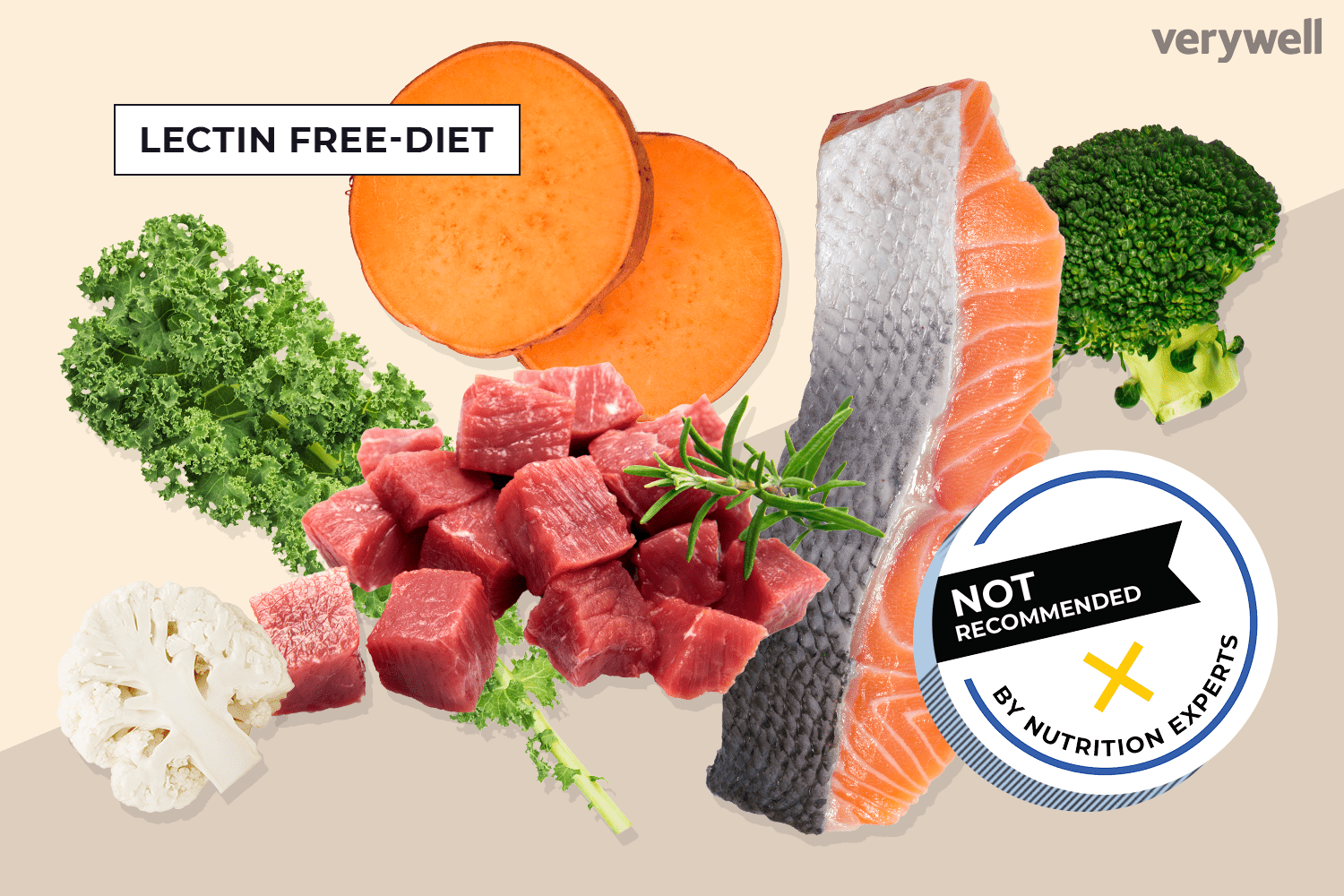If you’ve been keeping up with the latest diet trends, you may have come across the Lectin-Free Diet. This eating plan has gained attention for its claims to combat weight gain and inflammation by eliminating foods that contain lectins, such as wheat, dairy, and certain fruits and vegetables. Advocated by cardiologist Steven Gundry, the diet is divided into three phases, with the initial phase being the most restrictive, gradually adding in approved lectin-free foods. While proponents of the diet praise its potential reduction in inflammation and emphasis on whole, unprocessed foods, critics argue that it may lead to nutrient deficiencies and lacks strong scientific evidence. So, if you’re considering jumping on the lectin-free bandwagon, it’s always a good idea to consult with a healthcare provider or registered dietitian, especially if you have an underlying health condition.
What is the lectin-free diet in a nutshell
The lectin-free diet is a dietary approach that aims to eliminate or significantly reduce the consumption of foods that contain lectins. Lectins are proteins found in many foods, including grains, legumes, dairy products, and certain fruits and vegetables. This diet was popularized by cardiologist Steven Gundry, who claims that lectins can lead to weight gain, inflammation, and other adverse symptoms.
According to proponents of the lectin-free diet, eliminating lectin-containing foods can help improve overall health and prevent various health issues. The diet is based on the belief that lectins can cause damage to the gut lining, increase inflammation in the body, and interfere with nutrient absorption. By avoiding these foods, it is believed that individuals can alleviate digestive issues, reduce inflammation, and promote overall well-being.
Exploring benefits
Advocates of the lectin-free diet suggest several benefits associated with following this eating plan. While there is limited scientific evidence to support these claims, some individuals report experiencing positive outcomes. Here are some of the potential benefits that are often attributed to the lectin-free diet:
Potential reduction in inflammation
Inflammation is a natural response by the body’s immune system, but chronic inflammation can lead to various health problems. Proponents of the lectin-free diet argue that by eliminating lectin-containing foods, individuals can potentially reduce inflammation in their bodies, leading to improvements in overall health. However, it is important to note that more research is needed to fully understand the impact of lectins on inflammation.
Improved nutrient absorption
Lectins have been suggested to interfere with the absorption of nutrients in the gut. By avoiding foods high in lectins, individuals following the lectin-free diet may improve their nutrient absorption and ensure they are obtaining the necessary vitamins and minerals from their diet. However, it is important to note that there is limited scientific evidence supporting the theory that lectins significantly interfere with nutrient absorption in healthy individuals.
Emphasis on whole, unprocessed foods
One major benefit of the lectin-free diet is its emphasis on whole, unprocessed foods. This eating plan encourages individuals to focus on foods such as fruits, vegetables, lean proteins, and healthy fats. By avoiding processed and packaged foods that often contain high levels of lectins, individuals following the lectin-free diet can improve their overall diet quality and potentially achieve better health outcomes.

Cooking with instant pot can reduce lectins in certain foods
The lectin-free diet often requires individuals to cook their own meals to ensure they are not consuming foods high in lectins. Cooking methods such as boiling, pressure cooking, and using an instant pot can help reduce lectin levels in certain foods. For example, pressure cooking beans can significantly reduce their lectin content, making them safe to consume on the lectin-free diet.
Using an instant pot for meal preparation can be beneficial for those following the lectin-free diet as it allows for convenient and efficient cooking of lectin-free meals. The instant pot’s pressure cooking feature can help reduce lectins in foods like beans and grains, making them more easily digestible for individuals sensitive to lectins.
It is important to note that cooking methods can vary in their effectiveness at reducing lectins, and some foods may still contain trace amounts of lectins even after cooking. Therefore, it is crucial to thoroughly research cooking techniques for specific foods and consult reliable sources or healthcare professionals for guidance.
Pros of the Lectin-Free Diet
Despite the lack of strong scientific evidence, some individuals have reported positive experiences with the lectin-free diet. Here are some potential pros associated with following this eating plan:
Potential reduction in inflammation
As mentioned earlier, proponents of the lectin-free diet argue that eliminating lectins can lead to a reduction in inflammation. By reducing inflammation in the body, individuals may experience positive changes in their overall health and well-being. However, it is important to note that the impact of lectins on inflammation and the effectiveness of the lectin-free diet in reducing inflammation require further research.
Improved nutrient absorption
Lectins have been suggested to interfere with nutrient absorption in the gut. By avoiding foods high in lectins, individuals following the lectin-free diet may improve their ability to absorb essential nutrients from their diet. This can potentially lead to better overall nutrient status and support overall health. However, more research is needed to fully understand the extent to which lectins impact nutrient absorption in healthy individuals.
Emphasis on whole, unprocessed foods
Another benefit of the lectin-free diet is its emphasis on whole, unprocessed foods. By focusing on whole grains, fruits, vegetables, lean proteins, and healthy fats, individuals can improve the nutritional quality of their diet. This can provide a wide range of essential nutrients and promote overall health and well-being.

Cons of the Lectin-Free Diet
While the lectin-free diet has its potential benefits, it also comes with several cons that individuals should consider before deciding to follow this eating plan:
Restrictive nature of the diet
One major drawback of the lectin-free diet is its restrictive nature. The diet eliminates or severely limits the intake of various food groups, including grains, legumes, dairy products, and certain fruits and vegetables. This can make it challenging to obtain a well-rounded and balanced diet that meets all of the body’s nutritional needs.
Limited scientific evidence
Critics argue that the lectin-free diet is not supported by strong scientific evidence. While some anecdotal reports suggest positive outcomes, there is a lack of well-designed, large-scale studies that support the claims made by proponents of this diet. It is important to note that individual experiences may vary, and more research is needed to fully understand the potential benefits and drawbacks of the lectin-free diet.
Difficulty in obtaining key nutrients
Eliminating or severely restricting lectin-containing foods can potentially lead to nutrient deficiencies. Grains and legumes, for example, are excellent sources of fiber, protein, vitamins, and minerals. By avoiding these foods, individuals may need to find alternative sources of these important nutrients to maintain a balanced diet. It is crucial for individuals following the lectin-free diet to carefully plan their meals and ensure they are meeting all of their nutritional needs.
Potential for unwanted side effects
Some individuals may experience unwanted side effects when following the lectin-free diet. For example, eliminating grains and legumes can lead to changes in bowel habits and may cause digestive discomfort. Additionally, sudden dietary changes can also cause gastrointestinal distress, such as bloating or gas. It is important for individuals to listen to their bodies and make adjustments as needed while following this diet.
Consulting with healthcare provider or registered dietitian
Before starting any new diet or making significant changes to your eating plan, it is recommended to consult with a healthcare provider or registered dietitian. They can assess your individual health needs, provide personalized recommendations, and help you make informed decisions regarding your diet.
This is particularly important for individuals with underlying health conditions or those who are at a higher risk of nutrient deficiencies. A healthcare professional can help determine if the lectin-free diet is suitable for you and provide guidance on how to meet your nutritional needs while following this plan.
In conclusion, the lectin-free diet eliminates or significantly reduces the consumption of foods that contain lectins. While some individuals report positive outcomes, it is important to recognize the limited scientific evidence supporting the claims made by proponents of this diet. The lectin-free diet may have potential benefits, such as reduced inflammation and improved nutrient absorption, but it also comes with restrictions and the potential for nutrient deficiencies. Consulting with a healthcare provider or registered dietitian is crucial before starting this diet, especially for those with underlying health conditions. Ultimately, it is important to find a dietary approach that is sustainable, balanced, and meets your individual nutritional needs.



